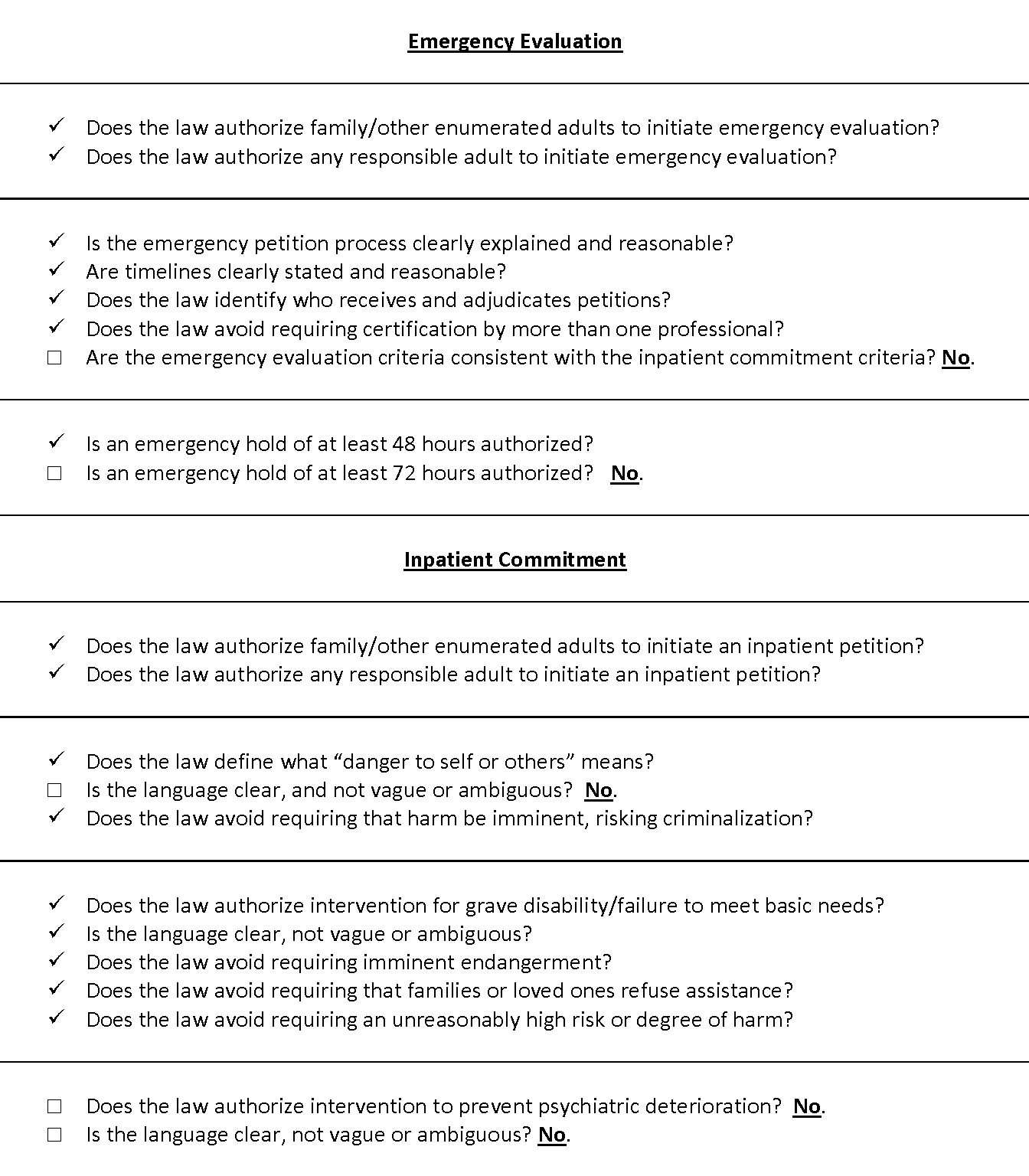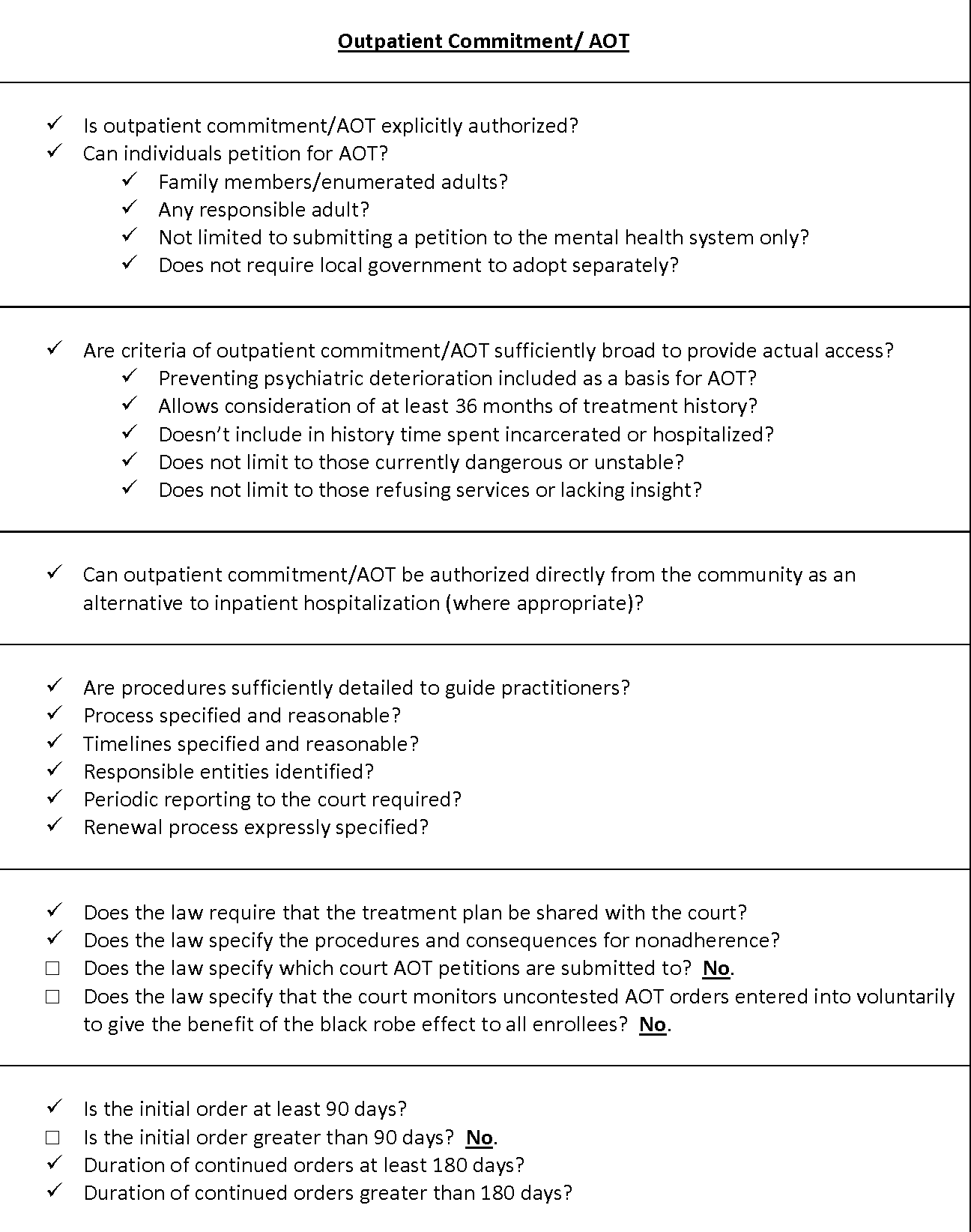Family Resources in Resources in Texas
- Texas Health and Human Services Mental Health and Substance Use (hhs.texas.gov) Resources and contacts
- Adult Mental Health Coordinated Specialty Care for First Episode of Psychosis (hhs.texas.gov) Early intervention program for SMI
- Friends and Family Guide to Adult Mental Health Services (hhs.texas.gov) Information, guidance, contacts
- NAMI Texas (namitexas.org) Support groups, training, information
- Disability Rights Texas (disabilityrightstx.org) Protection and advocacy for individuals with disabilities
- Programs for People who are Homeless or at Risk of Becoming Homeless (hhs.texas.gov) Supportive housing options, rental assistance, and more
- TDCJ Offender Search (tdcjinmatesearch.org) Search for a person in jail or prison in Texas
- State Bar of Texas (texasbar.com) Legal assistance
How many people in Texas have SMI?
individuals with severe mental illness.
individuals with SMI who receive treatment in a given year.
of the adult population is estimated living with a SMI in the United States.
State psychiatric hospital beds in Texas
2023 total beds: 1,509
- Civil beds: 570
- Forensic beds: 939
2023 beds per 100,000 people: 5
Click here for more information about state psychiatric hospital beds in Texas.
A minimum of 50 beds per 100,000 people is considered necessary to provide minimally adequate treatment for individuals with severe mental illness. Texas fails to meet this minimum standard.
For Additional Information
Data is a powerful tool to advocate for change. Curious about a specific data point in your state? Reach out to us at ORPA@treatmentadvocacycenter.org
Fast Facts on SMI in Texas
Deinstitutionalization, outdated treatment laws, discriminatory Medicaid funding practices, and the prolonged failure by states to fund their mental health systems drive those in need of care into the criminal justice and corrections systems.
18%
36,827
1,509
24 to 1
2021 Texas State Mental Health Agency's expenditures
Every state receives block grant funding from the federal government to provide mental health services to their community. Below is some information about how these dollars are spent and compares to other state spending.
$1,207,619,240
35%
$2,838
0.9%
Texas Treatment Laws
TEX. HEALTH & SAFETY CODE § 573.011(a). An adult may file a written application for the emergency detention of another person. TEX. HEALTH & SAFETY CODE § 573.001(a). A peace officer, without a warrant, may take a person into custody, regardless of the age of the person, if the officer: (1) has reason to believe and does believe that (A) the person is a person with mental illness; and (B) because of that mental illness there is a substantial risk of serious harm to the person or to others unless the person is immediately restrained; and (2) believes that there is not sufficient time to obtain a warrant before taking the person into custody. TEX. HEALTH & SAFETY CODE § 573.011. [A] written application for the emergency detention of another person … must state: (1) that the applicant has reason to believe and does believe that the person evidences mental illness; (2) that the applicant has reason to believe and does believe that the person evidences a substantial risk of serious harm to himself or others; (3) a specific description of the risk of harm; (4) that the applicant has reason to believe and does believe that the risk of harm is imminent unless the person is immediately restrained; (5) that the applicant's beliefs are derived from specific recent behavior, overt acts, attempts, or threats; (6) a detailed description of the specific behavior, acts, attempts, or threats; and (7) a detailed description of the applicant's relationship to the person whose detention is sought.
TEX. HEALTH & SAFETY CODE § 574.001(a). A county or district attorney or other adult may file a sworn written application for court-ordered mental health services. Only the district or county attorney may file an application that is not accompanied by a certificate of medical examination. TEX. HEALTH & SAFETY CODE § 574.034(a). The judge may order a proposed patient to receive court- ordered temporary inpatient mental health services only if the judge or jury finds, from clear and convincing evidence, that: (1) the proposed patient is a person with mental illness; and (2) as a result of that mental illness the proposed patient: (A) is likely to cause serious harm to the proposed patient; (B) is likely to cause serious harm to others; or (C) is: (i) suffering severe and abnormal mental, emotional, or physical distress; (ii) experiencing substantial mental or physical deterioration of the proposed patient's ability to function independently, which is exhibited by the proposed patient's inability, except for reasons of indigence, to provide for the proposed patient's basic needs, including food, clothing, health, or safety; and (iii) unable to make a rational and informed decision as to whether or not to submit to treatment. TEX. HEALTH & SAFETY CODE § 574.035(a). The judge may order a proposed patient to receive court- ordered extended inpatient mental health services only if the jury, or the judge if the right to a jury is waived, finds, from clear and convincing evidence, that: (1) the proposed patient is a person with mental illness; (2) as a result of that mental illness the proposed patient: (A) is likely to cause serious harm to the proposed patient; (B) is likely to cause serious harm to others; or (C) is: (i) suffering severe and abnormal mental, emotional, or physical distress; (ii) experiencing substantial mental or physical deterioration of the proposed patient's ability to function independently, which is exhibited by the proposed patient's inability, except for reasons of indigence, to provide for the proposed patient's basic needs, including food, clothing, health, or safety; and (iii) unable to make a rational and informed decision as to whether or not to submit to treatment; (3) the proposed patient's condition is expected to continue for more than 90 days; and (4) the proposed patient has received court-ordered inpatient mental health services under this subtitle or under Chapter 46B, Code of Criminal Procedure, for at least 60 consecutive days during the preceding 12 months.

TEX. HEALTH & SAFETY CODE § 574.0345 (a). The judge may order a proposed patient to receive court-ordered temporary [up to 90 days] outpatient mental health services only if: (1) the judge finds that appropriate mental health services are available to the proposed patient; and (2) the judge or jury finds, from clear and convincing evidence, that: (A) the proposed patient is a person with severe and persistent mental illness; (B) as a result of the mental illness, the proposed patient will, if not treated, experience deterioration of the ability to function independently to the extent that the proposed patient will be unable to live safely in the community without court-ordered outpatient mental health services; (C) outpatient mental health services are needed to prevent a relapse that would likely result in serious harm to the proposed patient or others; and (D) the proposed patient has an inability to participate in outpatient treatment services effectively and voluntarily, demonstrated by: (i) any of the proposed patient’s actions occurring within the two-year period that immediately precedes the hearing; or (ii) specific characteristics of the proposed patient’s clinical condition that significantly impair the proposed patient’s ability to make a rational and informed decision whether to submit to voluntary outpatient treatment. (b) To be clear and convincing under Subsection (a)(2), the evidence must include expert testimony and evidence of a recent overt act or a continuing pattern of behavior that tends to confirm: (1) the deterioration of ability to function independently to the extent that the proposed patient will be unable to live safely in the community; (2) the need for outpatient mental health services to prevent a relapse that would likely result in serious harm to the proposed patient or others; and (3) the proposed patient’s inability to participate in outpatient treatment services effectively and voluntarily. TEX. HEALTH & SAFETY CODE § 574.0355. (a) The judge may order a proposed patient to receive court-ordered extended [up to one year] outpatient mental health services only if: (1) the judge finds that appropriate mental health services are available to the proposed patient; and (2) the judge or jury finds, from clear and convincing evidence, that: (A) the proposed patient is a person with severe and persistent mental illness; (B) as a result of the mental illness, the proposed patient will, if not treated, experience deterioration of the ability to function independently to the extent that the proposed patient will be unable to live safely in the community without court-ordered outpatient mental health services; (C) outpatient mental health services are needed to prevent a relapse that would likely result in serious harm to the proposed patient or others; (D) the proposed patient has an inability to participate in outpatient treatment services effectively and voluntarily, demonstrated by: (i) any of the proposed patient’s actions occurring within the two-year period that immediately precedes the hearing; or (ii) specific characteristics of the proposed patient’s clinical condition that significantly impair the proposed patient’s ability to make a rational and informed decision whether to submit to voluntary outpatient treatment; (E) the proposed patient’s condition is expected to continue for more than 90 days; and (F) the proposed patient has received: (i) court-ordered inpatient mental health services under this subtitle or under Subchapter D or E, Chapter 46B, Code of Criminal Procedure, for a total of at least 60 days during the preceding 12 months; or (ii) court-ordered outpatient mental health services under this subtitle or under Subchapter D or E, Chapter 46B, Code of Criminal Procedure, during the preceding 60 days. (b) The jury or judge is not required to make the finding under Subsection (a)(2)(F) if the proposed patient has already been subject to an order for extended mental health services. (c) To be clear and convincing under Subsection (a)(2), the evidence must include expert testimony and evidence of a recent overt act or a continuing pattern of behavior that tends to confirm: (1) the deterioration of the ability to function independently to the extent that the proposed patient will be unable to live safely in the community; (2) the need for outpatient mental health services to prevent a relapse that would likely result in serious harm to the proposed patient or others; and (3) the proposed patient’s inability to participate in outpatient treatment services effectively and voluntarily.

Recommended updates to treatment laws
- 1
Amend Tex. Health & Safety Code Ann. § 573.012 to make emergency evaluation criteria consistent with inpatient criteria by requiring likelihood of serious harm to self or others for both
- 2
Amend Tex. Health & Safety Code Ann. § 573.021(b) to extend duration of emergency hold period to a minimum of 72 hours
- 3
Amend Tex. Health & Safety Code Ann. § 574.034(a) to provide adequate definition of danger to self or others
- 4
Add psychiatric deterioration criteria or amend grave disability criteria to include it
- 5
Amend Tex. Health & Safety Code Ann. § 574.034(g) to extend duration of initial outpatient order beyond 90 days
- 6
Adopt express procedures for the court to monitor uncontested AOT orders entered into voluntarily to give the benefit of the black robe effect to all enrollees
